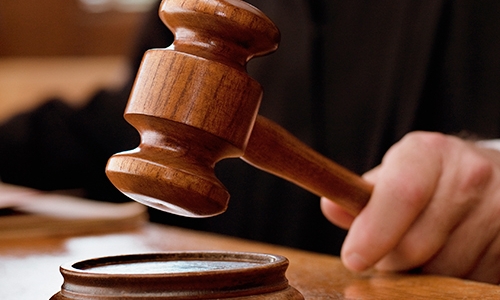July 27, 2017
Aspen has been the home of things of great value for a long time… beginning with silver. Today, one of the treasures in Aspen is the Aspen Institute. It was founded in 1950 to promote the “appreciation of open minded ideas and values, open dialogue and enlightened leadership.” One aspect of the Institute is the Justice and Society program, which focuses on issues related to the meaning of justice and how a just society ought to balance fundamental rights with public policy.
July 26, 2017
The 6th Annual Educating Tomorrow’s Lawyers Conference is right around the corner! It has become ETL Conference tradition to kick off the first day with a series of Ignite presentations. Presenters have 6 minutes, 20 slides, and 18 seconds per slide to share their projects, successes, and innovative ideas with a room full of legal educators and employers. In past years, presenters—and attendees—have been mostly from Consortium Schools. This year, all registrants are welcome—and in that spirit, we are also inviting any registrant to give an Ignite presentation!
July 25, 2017
The legal industry is changing. In some courts, upwards of 80% of civil and family cases involve litigants who are navigating the court system without any form of legal assistance. Research has confirmed that the primary reason so many do not have the benefit of a lawyer is because of cost. The inability to afford an attorney is no longer an issue confined to low-income Americans. Increasingly, middle-class litigants are finding themselves priced out of legal services as well. In addition, even litigants who can afford an attorney may choose to opt for self-representation in order to maintain a certain level of control over their legal matters or to keep the costs of such services down.
July 24, 2017
Late last week, tens of thousands of Polish citizens took to the streets—and citizens around the world took to social media—to protest three legislative proposals that would severely impair the independence of Poland’s judiciary and weaken the Rule of Law in the country. Protesters used the hashtag #wolnesady, or "free courts,” to mark their efforts.
July 24, 2017
The legal profession is amid one of its most tumultuous periods ever. The way law firms conduct business is changing. Technology is upending many long held established practices. New entrants are entering the market and changing the way legal services are provided. And while there may be pros and cons to these changes, they are largely occurring because they produce better results for the ultimate end users of the legal system—clients.
July 21, 2017
Last year the Civil Rules Advisory Committee took up the topic of Rule 30(b)(6) depositions following the submittal of a letter by members of the Council and Federal Practice Task Force of the ABA Section of Litigation, in their individual capacities. Unlike individual depositions, Rule 30(b)(6) depositions are noticed to an organization such as a corporation or government agency, and include a description of the matters for examination. The company must identify and prepare the witness to testify about information known or reasonably available to the organization. The rule was initially adopted to curb the practice of “bandying” where organizations produced one witness after another, with each disclaiming knowledge. In their request for a review of current practices under the Rule, the ABA members highlighted confusion about the Rule’s requirements, as well as instances where the courts have divided on how to interpret those requirements.
July 20, 2017
Too often, an adversarial family court process does not provide the best outcomes for families going through divorce or separation. Yet, most people are still primarily directed to the courts for resolution of these family law issues—and most courts hearing these matters have overburdened dockets and lack the resources most likely to improve outcomes for parents and their children. Families in these situations can benefit tremendously from services that help them plan for the future in ways that maximize their joint interests and minimize any negative effects or outcomes for their children. The Center for Out-of-Court Divorce (COCD) in Denver, Colorado, offers proven processes for separating and divorcing families that enable better outcomes for children and that provide greater accessibility, efficiency, and fairness for all parties.
July 19, 2017
A couple years ago, IAALS co-sponsored a conference called Client-Centric Legal Services. While there were many interesting takeaways, there was one that I still think about all the time. A speaker suggested that, in legal education, we spend so much time thinking about how to teach students to think like lawyers that we often forget we also need them to think like clients. The challenges facing the legal profession right now are many—and many of them will be more successfully addressed if we listen to and better understand the needs of legal consumers. That mindset begins in law school, which is why clients are at the center of our 6th Annual Educating Tomorrow’s Lawyers Conference.

Press Release
-
Carolyn A. Tyler
-
Zachary Willis
July 18, 2017
Questions about when judges should recuse themselves from hearing cases—usually because a party perceives their ability to be impartial to be in doubt—have drawn renewed attention recently due to high-profile cases and closely divided U.S. Supreme Court decisions. For example, the high court ruled last year in Williams v. Pennsylvania that a defendant was denied a fair hearing in a capital case when the state’s chief justice did not recuse himself, because decades earlier the justice had prosecuted the case as then district attorney.
July 14, 2017
Divorce proceedings are getting a digital makeover in the United Kingdom as Her Majesty's Courts & Tribunals Service (HMCTS) prepares to move all divorce applications online.

Guest Blog
July 14, 2017
Do the methods by which states choose their appellate judges result in benches with different characteristics? A new study concludes that the most distinctive appellate benches are in "merit-confirmation" states, in which the governor's appointment power is constrained, perhaps substantially, by the required consent of a separately elected body.
July 13, 2017
Since its founding in 2001, Justice at Stake was a national leader in the movement to promote fair and impartial courts and increase judicial diversity. But last month, the organization’s leaders announced that Justice at Stake was closing its doors. As former executive director Susan Liss explained in a recent ABA Journal article, the money from progressive organizations and individual donors on which the organization had come to depend simply wasn’t coming in.
